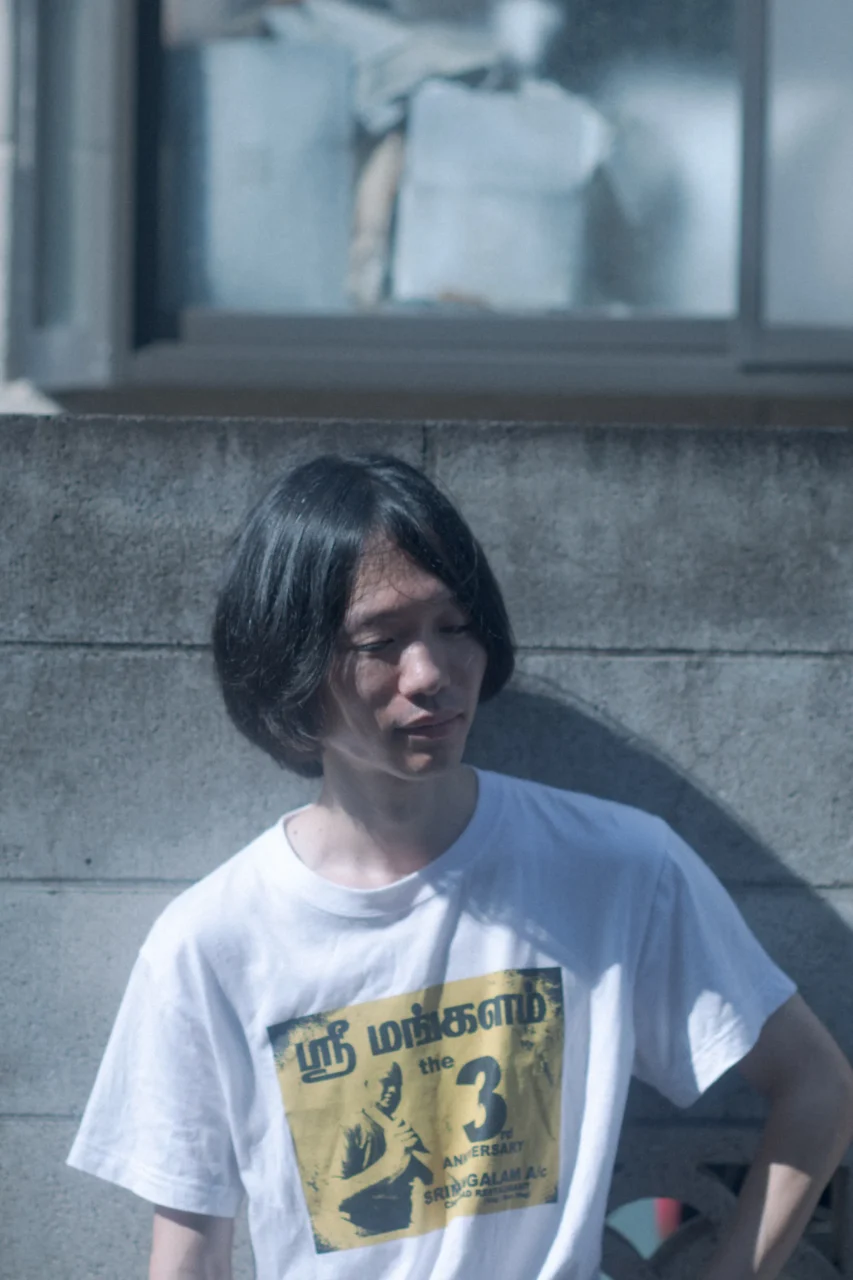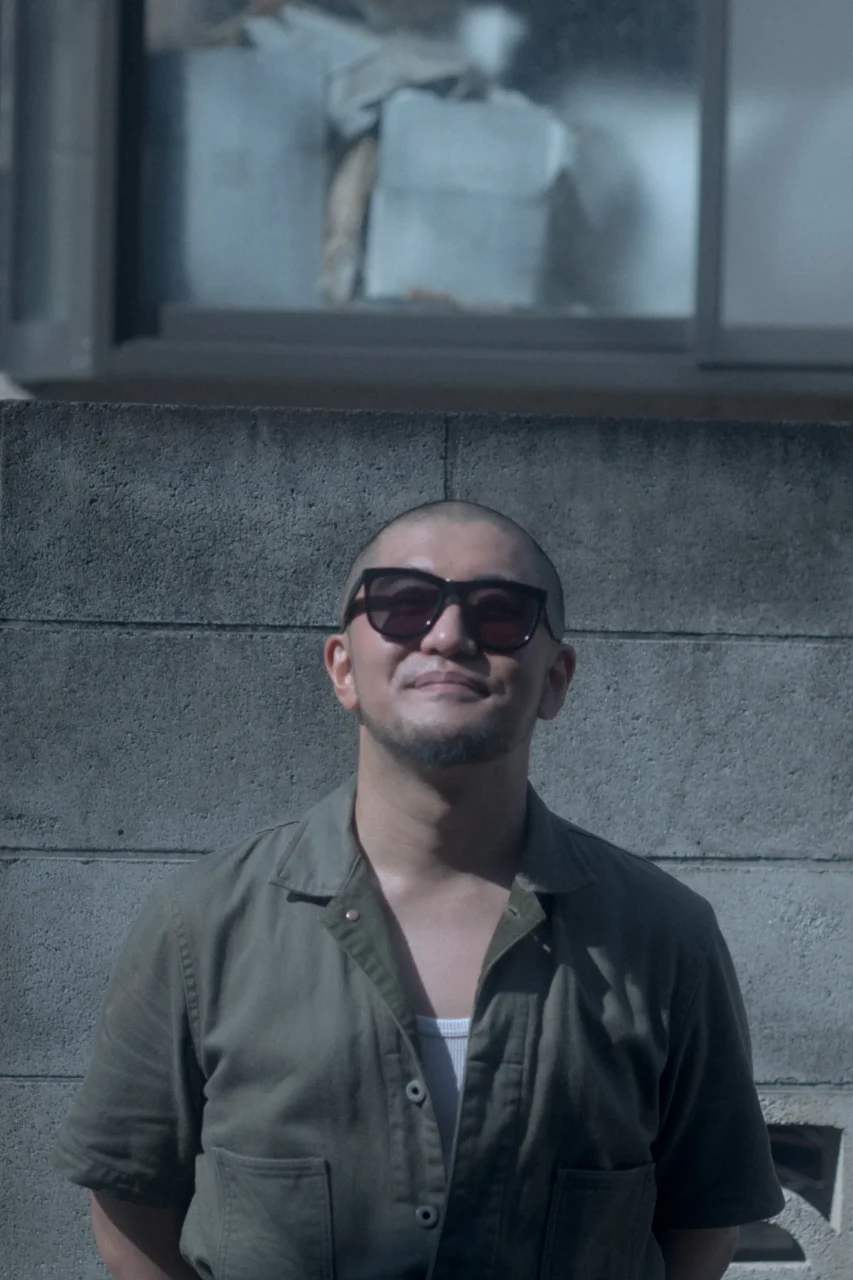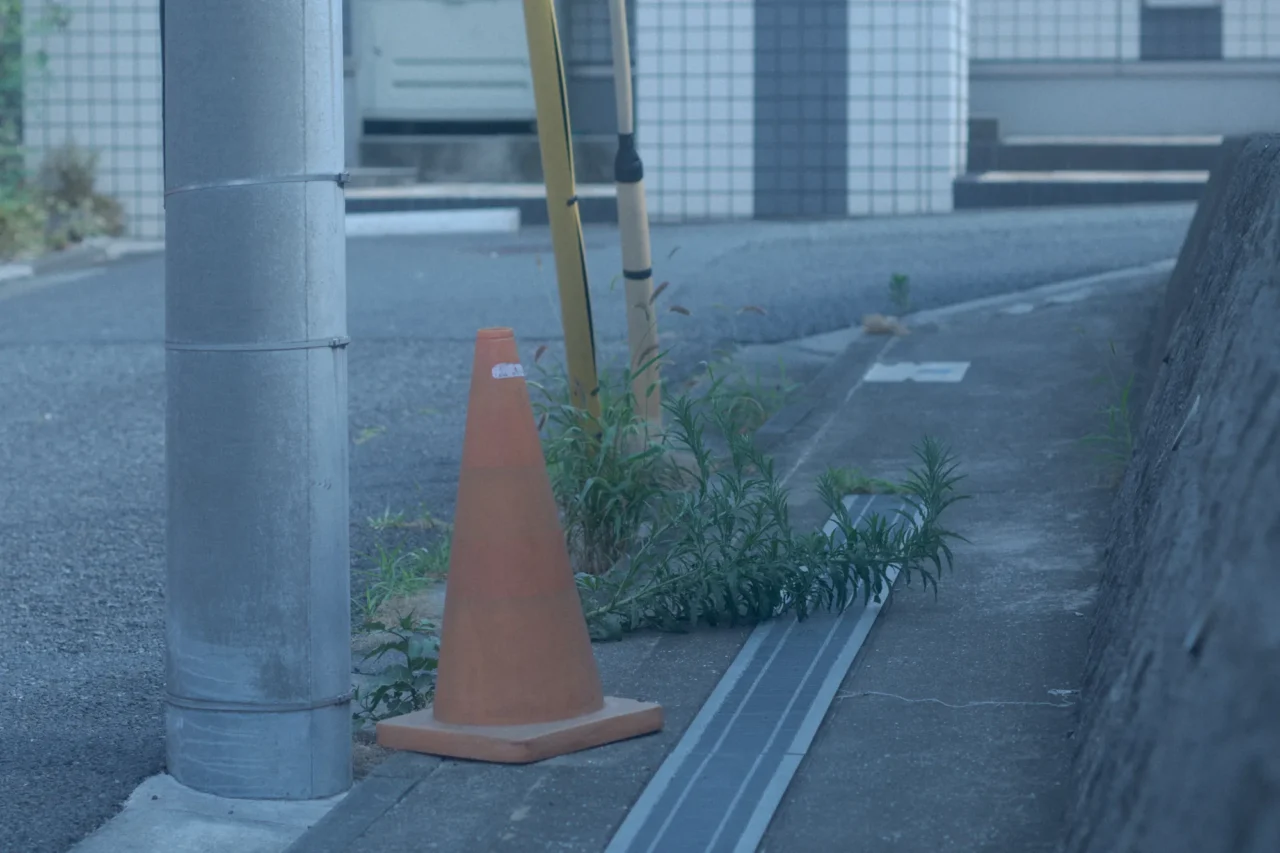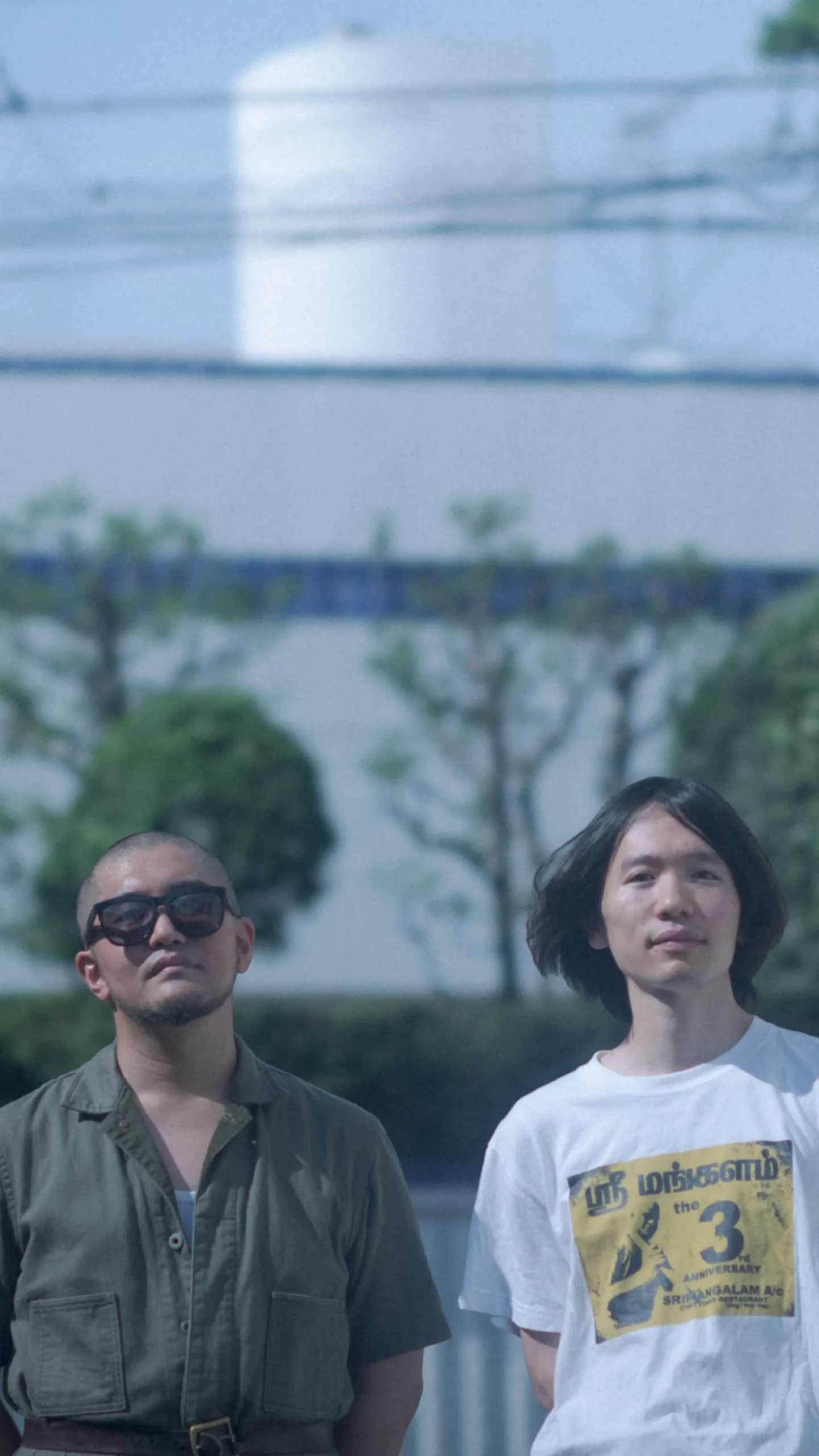INDEX
Itaru Uchimura’s Lyrics Speak More Directly with Deeper Social Awareness
Even though more members are writing songs now, Itaru still consistently handles the lyrics and vocals. Motomura, what do you find most compelling about his singing and words?
Motomura: I actually realized something for the first time while working on this album—I can’t generate any ideas without words. Up until now, everyone I’ve played in bands with, including Itaru, always brought both lyrics and music together. But Sunai and Nagai bring songs with placeholder melodies, just singing la la la… When I encountered that method for the first time, I was like, “I have no idea what to do!” Yet once Itaru’s lyrics were added, everything clicked, and I could see exactly “how this song should work.”
That’s fascinating.
Motomura: I also feel that Itaru’s lyrics have evolved over the years. On this album in particular, the words feel much more direct. In the past, I saw his lyrics as “hitting the core, but taking detours along the way.” This time, they come straight at you—I even found myself reading them with tears in my eyes.
Uchimura: Ahh…
Motomura: Thinking back to an early song, “Yama,” the opening lyrics go: “I’m rousing myself now / Eating from a big rice bowl.” At the time, I was stunned—“I’ve never heard lyrics like this!” But with this album, the feeling is different. The lyrics are more straightforward and direct than ever before.
Uchimura: I think that’s something that comes with getting older.
Looking back at your own work, what changes do you see in your lyrics?
Uchimura: Maybe it’s the things I eat that have changed.
Everyone: [laughs].
Uchimura: Lately, I’ve been eating nothing but soba. Rice has gotten so expensive too [laughs].

Motomura: If rice had been pricey back then, “Yama” might never have existed [laughs].

Uchimura: Yeah, that’s probably true [laughs]. When I wrote “Yama,” I wasn’t paying any attention to the price of rice.
[laughs] But doesn’t that also suggest that society is starting to influence your lyrics?
Uchimura: Absolutely. Everything is connected.
Motomura: And it’s not just the lyrics. I think our awareness of society has grown in the instruments and mixing as well. That goes for everyone. During the album’s production, we started considering its overall concept, and one idea that really resonated with me was what Sunai suggested: “ambiguity.” That every situation has multiple sides. It lined up perfectly with what I had been thinking lately. To put it simply: right here, things might feel calm and peaceful, but somewhere else in the world, many people are struggling.
Yes, exactly.
Motomura: I wanted to express in some way that multiple worlds are always running parallel. Things can conflict. Two realities can coexist. I wanted to make sure that never gets forgotten, and I tried to express that through the mixing.
For example, the first track, “Intro: Good Morning, This Is a Navigation to Nowhere,” combines the piano solo from MY REVOLUTION’s “Good Morning” with an improvisation based on the melody played by Nagai. The track conveys the coexistence of a “correct Good Morning” and an “incorrect Good Morning.” We experimented with this approach on many other tracks throughout the album.


























